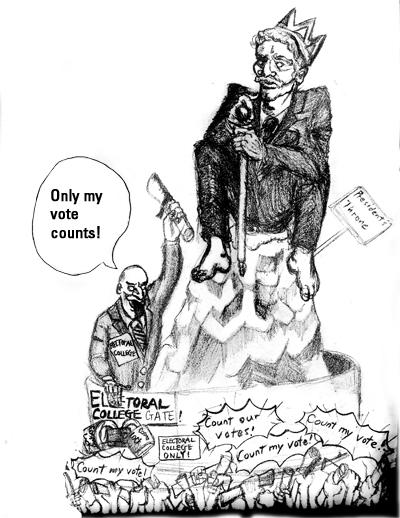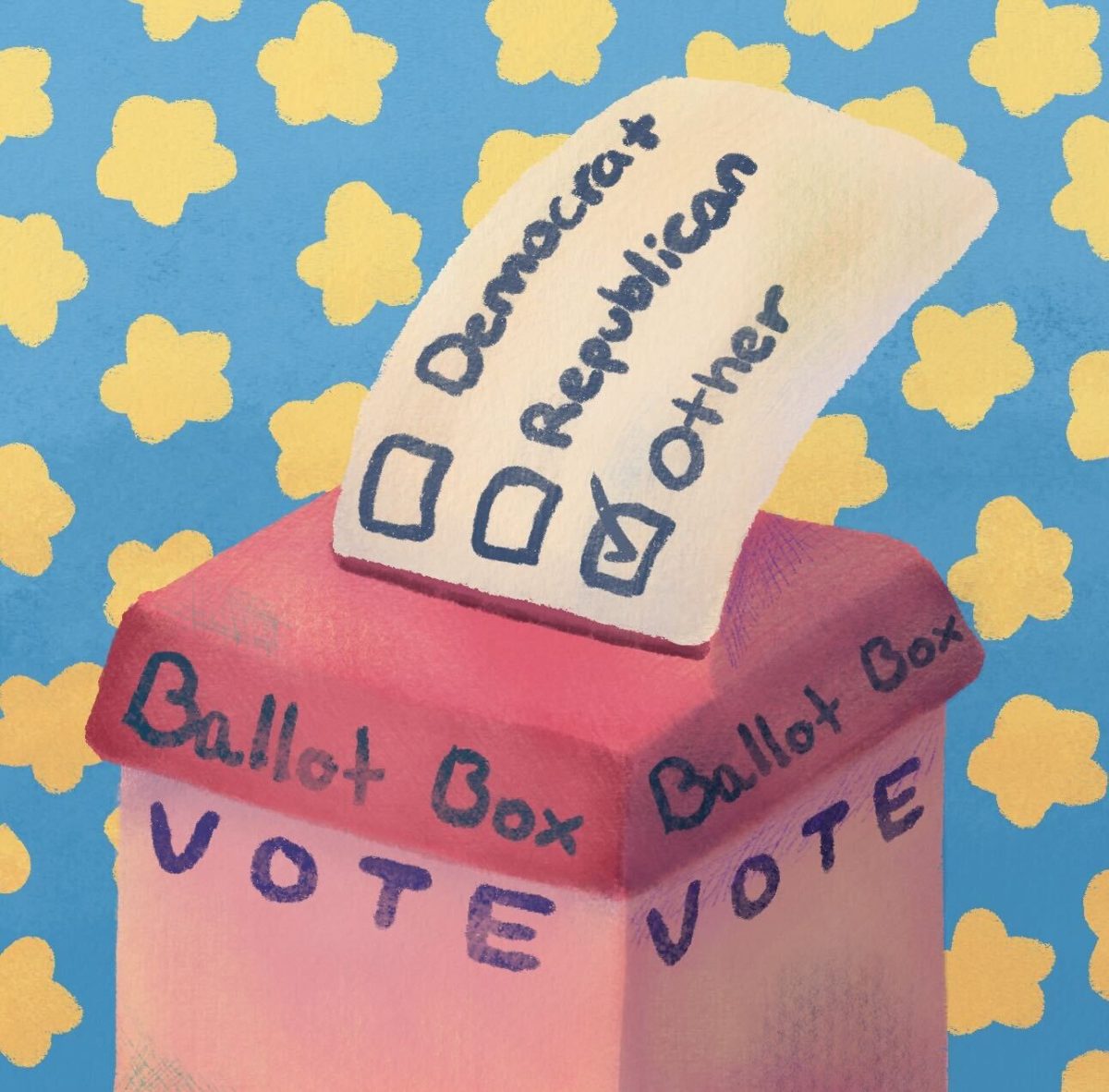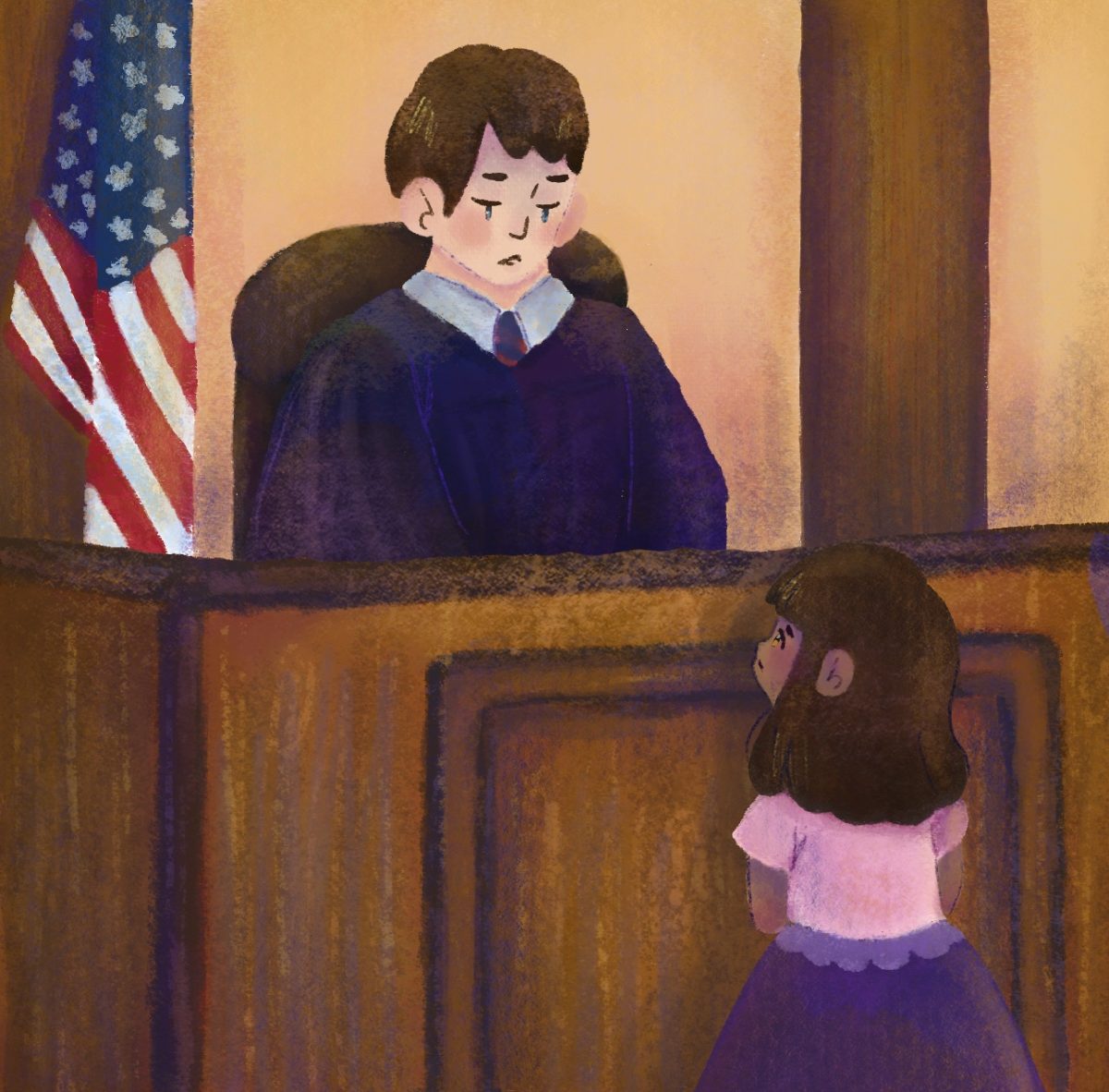
The presidential election is finally over, as Barack Obama took more than 300 electoral votes. While many voters casted their ballots with excitement Nov. 6, the sad truth is that for a vast swath of the electorate, their votes simply did not count – at least not in the way that they should have.
I did not vote for either Barack Obama or Mitt Romney, but for a third-party candidate. When I casually mentioned this to a colleague before the election, I was told it was a stupid thing to do because voting outside of the two parties was like throwing my vote away.
What struck me was the irony in the situation. The person who criticized me was invariably going to vote for Romney. In California, any vote for Romney is an effort in futility – my colleague’s vote did not count, just like my third party vote did not count.
This is due to our system of voting using the Electoral College. Its intent is admirable, but its execution has been anything but positive in recent years.
The Electoral College had a time and place in our history. It was laid out in Article II of our Constitution and was designed so that the number of electoral votes is equal to the number of representatives in Congress. The total number of votes currently stands at 538, which breaks down to 435 for the number of members in Congress and 100 for the number of senators and an additional three for the District of Columbia. To win the presidential election, a candidate has to reach a minimum of 270 electoral votes.
This often means that states like Ohio, Florida and Colorado become key battleground states as their political landscapes do not inherently lean Democrat or Republican.
The original purpose was to allow smaller states and rural areas to have a fair say in the major election. Some point out the good that the Electoral College has done in our history. In our 56 presidential elections from 1789-2008, there have only been four instances of the popular vote winners losing the electoral vote.
But the impact of the popular vote / electoral vote split is greater today. The most recent instance was in the 2000 election between George W. Bush and then Vice President Al Gore. That election came down to the 25 electoral votes representing Florida, that at the last minute, tipped the scales in favor of Bush.
The electoral college could have made political campaigning and vote counting much easier back then, but today’s world is considerably smaller due to advancements in technology. Getting the word out is one tweet or Facebook post away, and political ads can be run in newspapers, TV or online. The need to level the playing field when it comes to the presidential election is no longer as important.
Candidates know the playbook ins and outs and almost universally ignore solid red or blue states; the only time they campaign in them is for the party nomination or to rake in more money for their political war chests.
In California, we are relegated to the status of in-the-bag for Democrats, resulting in a lazy election strategy for both parties.
Getting rid of the electoral college could lift our political process out of the two-party entrenchment. Because of the hurdles it takes to get the electoral votes, any substantial third-party candidate only acts as a siphoner of votes from one of the two parties.
If we could change to simple majority vote wins, other parties could help to sway the voting populace. It would help to fix our broken political system rife with corruption and gamesmanship, and introduce substantive ideas into the political conversation.
-Nathan is a senior majoring in journalism. He likes to throw away a multitude of ideas and initiatives along with his vote. Trash is fun.





